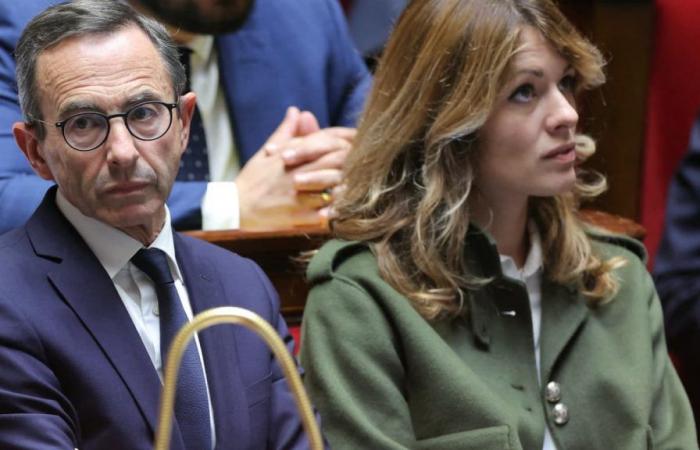In the middle of a meeting of European leaders on immigration issues, the government spokesperson wants to draw inspiration from the agreement between Italy and Albania where migrants have arrived, the time to study their request for asylum. “We don’t forbid ourselves,” assured Maud Bregeon.
Is France prepared to send asylum seekers arrested in the Channel and send them to a country outside the European Union (EU) to process their asylum application? The question arises as Emmanuel Macron participates this Thursday, October 17, in a European Council devoted in particular to immigration.
“It is a desire carried by the Minister of the Interior. It is being studied by the Ministry of the Interior,” explained government spokesperson Maud Bregeon on Sud Radio this Thursday morning.
The Meloni agreement as a model
“It takes a lot of time, it’s diplomacy, exchanges. We don’t forbid ourselves,” she again defended, with Italy led by Giorgia Meloni as a source of inspiration.
A little less than a year after the signing of a controversial agreement between Rome and Tirana, the first migrants arrested in Italian waters arrived on October 16 in Albaniawhere their asylum application will be outsourced.
Once disembarked, around fifteen men from Egypt and Bangladesh were registered in the first center created by the Italians in Albania, prefabricated units installed on the port surrounded by high gates and guarded by Italian law enforcement. , before being taken to a detention center.
Migrants are detained there under an administrative detention measure decided by the prefect of Rome, in 12 m² prefabs surrounded by high walls and cameras and monitored by the police, while awaiting the processing of their immigration request. ‘asylum.
If the latter is refused, cells have been installed in the camp, waiting to send them back to their country of origin. The centers should have a capacity of 1,000 places initially, then 3,000 eventually.
“Return hubs” as “innovative solutions”
Closely following the progress of operations, the President of the European Commission Ursula Von der Leyen indicated that she intended to present “a new legislative proposal” on migration issues with the desire to “rationalize the return process”.
In a letter addressed to European leaders, she further invites them to “explore” “innovative solutions”, such as “return hubs”, the term used to designate reception centers outside the European Union where the migrants
A similar initiative failed in 2018, but six years later, the European context has evolved significantly with far-right leaders at the head of several countries on the Continent and a Parliament in Brussels marked much more to the right.
The “Italian solution” to “study” for Maud Bregeon
On the offensive on the migration issue, the Minister of the Interior, Bruno Retailleau, has not publicly mentioned the return of migrants to countries other than those of their birth, while waiting for the examination of their request for asylum by France or in the event of refusal of consular passes.
Several provisions have certainly already been put on the table with deputies at the beginning of October, whether on the extension of administrative detention or a standoff with the countries of origin over visas.
“I note that my colleague Bruno Retailleau is extremely determined on the issue” of illegal immigration, judges government spokesperson Maud Bregeon, who argues that the “solution” chosen by Italy “must be studied”.
“Why not? Let’s see if it works,” she insisted again.
The abandonment of a similar agreement between the United Kingdom and Rwanda
The choice made by Italy, a first in Europe, was made possible by an agreement signed in November 2023, in the name of the long relations which unite Italy and Albania. Lasting five years, its cost for Rome is estimated at 160 million euros per year. The UK had attempted to launch a deal with Rwanda in 2022 before ultimately abandoning it.
The agreement between Rome and Tirana has been widely criticized by many human rights NGOs who see it as a violation of international rules.
“The Italy-Albania agreement violates international maritime law and risks further eroding the fundamental rights of refugees,” wrote the NGO SOS Humanity on Tuesday, estimating that “Italy de facto detains people seeking protection on Albanian territory without judicial review, which is profoundly inhumane and violates their fundamental rights.”






